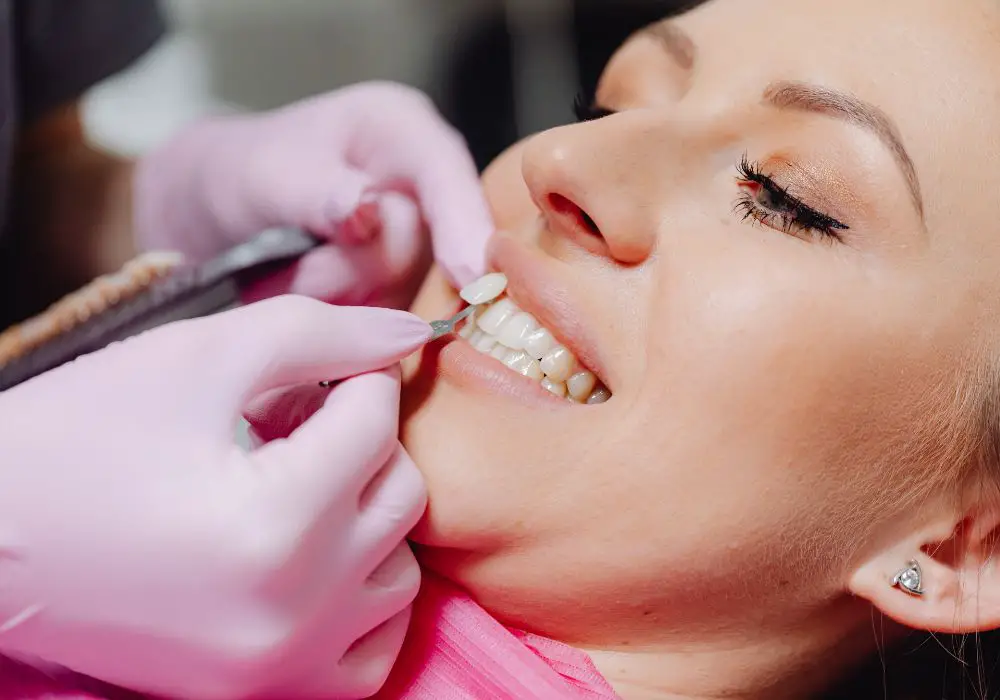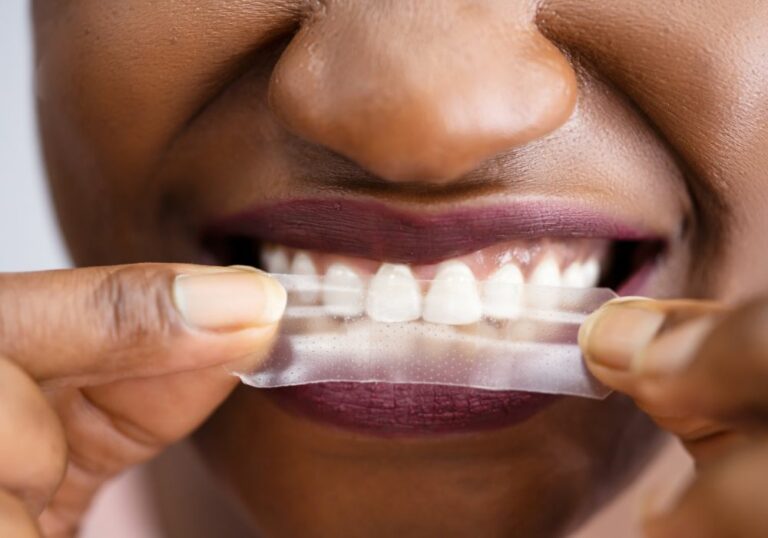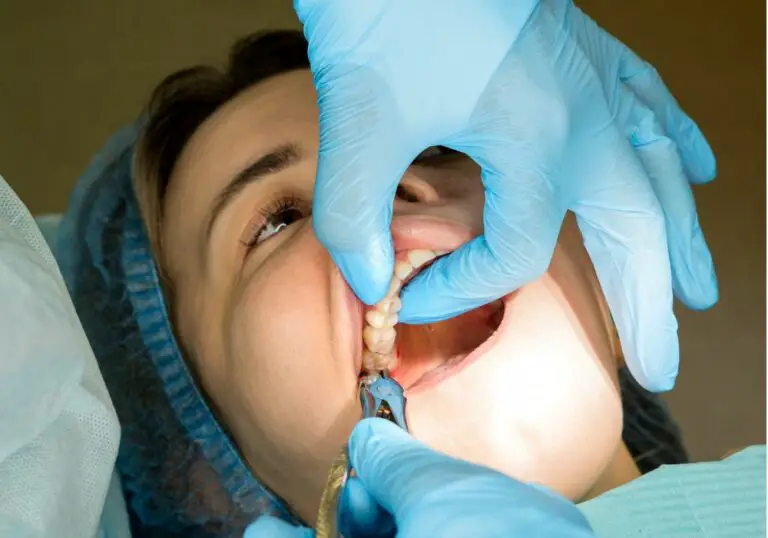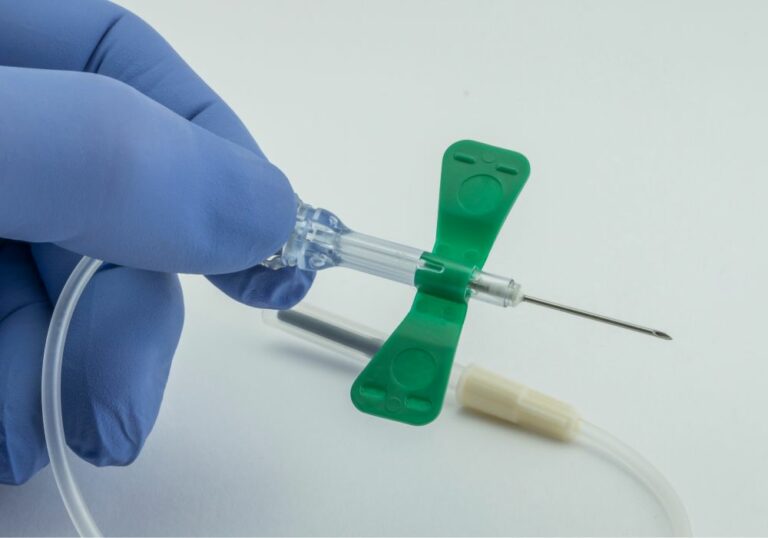Have you recently chipped a tooth and are wondering if there is a way to fix it without getting a veneer? You’re not alone. Chipping a tooth is a common dental injury that can happen to anyone, and it’s important to know your options for repairing it. While veneers are a popular solution, they can be expensive and may not be necessary for every case.
Fortunately, there are other ways to fix a chipped tooth that don’t involve veneers. Depending on the severity of the chip, your dentist may be able to repair it with a filling or bonding material. These options are typically less expensive than veneers and can be completed in just one visit to the dentist. However, it’s important to note that these solutions may not be as long-lasting or aesthetically pleasing as veneers, so it’s important to discuss your options with your dentist to determine the best course of action for your specific case.
Overall, while veneers are a popular and effective solution for chipped teeth, they are not the only option. With the help of your dentist, you can explore other solutions that may be more affordable or better suited to your needs. Don’t hesitate to ask questions and discuss your concerns with your dentist to ensure that you receive the best possible care for your chipped tooth.
Understanding Tooth Chips
Chipping a tooth is a common dental problem that can happen to anyone at any time. It can occur due to various reasons, such as biting on hard objects, playing sports, or even grinding your teeth. A chipped tooth can be a painful and uncomfortable experience, and it can also affect the appearance of your smile.
When you chip a tooth, it means that a small piece of the tooth has broken off, leaving a sharp edge or a gap in your tooth. The severity of the chip can vary from a minor chip that only affects the enamel to a more significant chip that exposes the dentin or pulp of the tooth.
If you have a chipped tooth, it is important to seek dental treatment as soon as possible. Ignoring a chipped tooth can lead to further damage, such as tooth decay or infection, and it can also cause pain and discomfort when eating or drinking.
Here are some common signs and symptoms of a chipped tooth:
- Sharp or rough edge on the tooth
- Sensitivity to hot or cold temperatures
- Pain when biting or chewing
- Swelling or redness in the gums around the chipped tooth
In some cases, you may not experience any symptoms, but it is still important to get your chipped tooth checked by a dentist.
When you visit a dentist for a chipped tooth, they will examine the tooth and determine the severity of the chip. Depending on the location and size of the chip, the dentist may recommend different treatment options, such as filling, bonding, or a dental crown.
Overall, a chipped tooth can be a minor or major dental problem, and it is important to seek dental treatment as soon as possible to avoid further damage and discomfort.
Causes of Chipped Teeth

Chipping a tooth can happen to anyone, and it can occur for a variety of reasons. Some common causes of chipped teeth include:
- Accidents or Injuries: Accidents or injuries are one of the most common causes of chipped teeth. A fall, a sports injury, or a car accident can all result in a chipped tooth.
- Biting down on hard objects: Biting down on hard objects like ice, hard candy, or nuts can cause a tooth to chip.
- Grinding or clenching your teeth: Grinding or clenching your teeth, also known as bruxism, can put excessive pressure on your teeth, causing them to chip or crack.
- Tooth decay: Tooth decay weakens the tooth structure, making it more susceptible to chipping or cracking.
- Large fillings: Large fillings can weaken the tooth structure, making it more prone to chipping.
- Using teeth as tools: Using your teeth as tools to open bottles or tear open packages can cause your teeth to chip.
If you have chipped a tooth, it is important to see a dentist as soon as possible. Leaving a chipped tooth untreated can lead to further damage and even tooth loss. Your dentist can evaluate the extent of the damage and recommend the best treatment options for you.
Signs of a Chipped Tooth
Chipping a tooth can be a painful experience, but sometimes it can be difficult to tell if you have a chipped tooth or not. Here are some signs to look out for:
- Sharp or jagged edge: If you run your tongue over your teeth and feel a sharp or jagged edge, it could be a sign of a chipped tooth.
- Pain or sensitivity: If you experience pain or sensitivity when biting down or eating hot or cold foods, it could be a sign of a chipped tooth.
- Visible damage: If you can see visible damage to your tooth, such as a small chip or crack, it’s likely that you have a chipped tooth.
- Rough or uneven surface: If the surface of your tooth feels rough or uneven, it could be a sign of a chipped tooth.
If you experience any of these signs, it’s important to see a dentist as soon as possible. Even a small chip can lead to bigger problems if left untreated, such as tooth decay or infection. Your dentist can assess the damage and recommend the best course of treatment for your specific situation.
Dental Consultation
If you have a chipped tooth, it’s essential to schedule a dental consultation with your dentist. During the consultation, your dentist will examine your tooth and discuss the available treatment options with you.
Initial Examination
During the initial examination, your dentist will carefully examine your chipped tooth. They will check for any damage to the tooth’s roots and determine if there is any decay or infection present. Your dentist will also evaluate the severity of the chip and determine if it has affected the tooth’s nerve.
Treatment Options Discussion
After the initial examination, your dentist will discuss the available treatment options with you. The most common treatment options for a chipped tooth are dental bonding, dental crowns, and veneers.
- Dental Bonding: Dental bonding is a quick and straightforward procedure that involves applying a tooth-colored resin to the chipped tooth. Your dentist will then shape and polish the resin to match the rest of your teeth.
- Dental Crowns: Dental crowns are custom-made caps that cover the entire tooth. Your dentist will prepare your tooth by removing any damaged or decayed parts before placing the crown.
- Veneers: Veneers are thin, custom-made shells that cover the front of your teeth. Your dentist will remove a small amount of enamel from your chipped tooth before placing the veneer.
Your dentist will help you determine which treatment option is best for your chipped tooth based on the severity of the chip and the location of the tooth. They will also discuss the cost of each treatment option and the expected results.
Remember, it’s essential to seek dental treatment for a chipped tooth as soon as possible. Ignoring a chipped tooth can lead to further damage and potentially more expensive and invasive treatments down the road.
Alternative Treatments to Veneers

If you have a chipped tooth, veneers are not your only option. There are alternative treatments available that can help restore your smile. Here are some of the most common alternative treatments to veneers:
Dental Bonding
Dental bonding is a procedure where a tooth-colored resin material is applied to the surface of a tooth and then hardened with a special light. This is a quick and easy procedure that can be completed in a single visit to the dentist. Dental bonding can be used to fix a variety of dental issues, including chipped teeth, cracked teeth, and gaps between teeth.
Dental Crown
A dental crown is a tooth-shaped cap that is placed over a damaged tooth to restore its shape, size, and strength. Crowns can be made from a variety of materials, including porcelain, metal, and ceramic. A dental crown can be used to fix a chipped tooth, but it is generally recommended for more severe cases where the tooth has been significantly damaged.
Root Canal Therapy
If a chipped tooth has caused damage to the nerve or pulp of the tooth, root canal therapy may be necessary. During this procedure, the damaged nerve and pulp are removed, and the inside of the tooth is cleaned and sealed. A dental crown is usually placed over the tooth to protect it and restore its function.
Overall, there are several alternative treatments to veneers that can help fix a chipped tooth. Your dentist can help you determine which treatment is best for your specific case.
Pros and Cons of Alternatives
If you have a chipped tooth, you may be wondering if there are alternatives to veneers. While veneers are a popular option for fixing chipped teeth, there are other alternatives that may work for you. Here are some pros and cons of different alternatives:
Dental Bonding
Dental bonding is a process in which a tooth-colored resin is applied to the chipped tooth and hardened with a special light. This process can be completed in one visit to the dentist and is less expensive than veneers.
Pros:
- Less expensive than veneers
- Completed in one visit
- Can be matched to the color of your teeth
Cons:
- Not as strong as veneers
- May need to be replaced more frequently
Crowns
Crowns are tooth-like caps that are placed over the chipped tooth. They can be made of porcelain, metal, or a combination of both.
Pros:
- Stronger than dental bonding
- Can be used to fix more severe damage
Cons:
- More expensive than dental bonding
- Requires more preparation of the tooth
- May look less natural than veneers
Inlays and Onlays
Inlays and onlays are similar to fillings but are made of porcelain or composite resin. They are used to fill in the damaged area of the tooth.
Pros:
- Less expensive than veneers
- More conservative than crowns
- Can be matched to the color of your teeth
Cons:
- May not be as strong as veneers or crowns
- May need to be replaced more frequently
Whitening
If the chip is small and does not affect the structure of the tooth, whitening may be an option. Whitening can help to make the tooth look more uniform in color.
Pros:
- Least expensive option
- Can be done at home or in the dentist’s office
Cons:
- Only works for small chips
- May not be effective for all types of discoloration
Overall, there are alternatives to veneers for fixing chipped teeth. Each option has its pros and cons, and the best option for you will depend on the severity of the damage and your budget.
Maintenance and Care of Repaired Teeth

After getting your chipped tooth repaired, it’s important to take proper care of it to ensure it lasts as long as possible. Here are some tips to help you maintain your repaired tooth:
Practice Good Oral Hygiene
Brush your teeth twice a day and floss regularly to keep your teeth and gums healthy. Use a soft-bristled toothbrush and fluoride toothpaste to avoid damaging your repaired tooth.
Avoid Hard or Crunchy Foods
Chewing on hard or crunchy foods can cause your repaired tooth to chip again. Avoid biting down on ice, hard candy, popcorn kernels, and other hard foods.
Wear a Mouthguard
If you play sports or grind your teeth at night, consider wearing a mouthguard to protect your repaired tooth from further damage.
Visit Your Dentist Regularly
Schedule regular dental checkups to ensure your repaired tooth is still in good condition. Your dentist can also check for any signs of decay or other issues that may affect your repaired tooth.
Consider a Nightguard
If you grind your teeth at night, your dentist may recommend a nightguard to protect your repaired tooth and prevent further damage.
By following these tips, you can help ensure your repaired tooth stays strong and healthy for years to come.
Preventing Future Tooth Chips
After fixing a chipped tooth, you’ll want to take steps to prevent future chips from occurring. Here are some tips to help you keep your teeth healthy and strong:
1. Practice Good Oral Hygiene
Brushing your teeth twice a day and flossing once a day can help prevent tooth decay and gum disease, which can weaken your teeth and make them more susceptible to chips and cracks. Use a fluoride toothpaste to strengthen your enamel and choose a soft-bristled toothbrush to avoid damaging your teeth.
2. Wear a Mouthguard
If you play sports or grind your teeth at night, wearing a mouthguard can help protect your teeth from chips and cracks. A custom-fitted mouthguard from your dentist will provide the best protection, but even a store-bought mouthguard is better than nothing.
3. Avoid Hard Foods and Objects
Chewing on hard foods like ice, popcorn kernels, and hard candy can chip your teeth. Similarly, using your teeth to open packages or bite your nails can also cause damage. Be mindful of what you put in your mouth and avoid using your teeth as tools.
4. Get Regular Dental Checkups
Visiting your dentist every six months for a cleaning and checkup can help catch small problems before they become big ones. Your dentist can also identify any areas of weakness in your teeth and recommend treatments to strengthen them.
By following these tips, you can help prevent future tooth chips and keep your smile healthy and beautiful.
Frequently Asked Questions
How much does it cost to repair a chipped tooth?
The cost of repairing a chipped tooth can vary depending on the severity of the damage and the type of treatment needed. Simple repairs such as dental bonding or filling can cost anywhere from $100 to $400 per tooth. However, more complex treatments such as dental crowns or veneers can cost upwards of $1,000 per tooth.
Will a small chipped tooth smooth out on its own?
In some cases, a small chipped tooth may smooth out on its own over time as you continue to use and maintain your teeth. However, it’s important to note that this is not always the case and that a chipped tooth should be evaluated by a dentist to determine the best course of action.
What are the options for fixing a slightly chipped front tooth?
If you have a slightly chipped front tooth, there are a few different options for repair. Dental bonding or filling can be used to fill in the chip and restore the appearance of the tooth. Another option is to use a dental veneer, which is a thin shell that is placed over the front of the tooth to improve its appearance.
Can a chipped tooth be fixed with a filling?
Yes, a chipped tooth can often be fixed with a filling. This is typically the case if the chip is small and doesn’t extend into the pulp of the tooth. Your dentist will evaluate the damage and recommend the best course of treatment for your specific situation.
What is the best way to repair a chipped front tooth?
The best way to repair a chipped front tooth depends on the severity of the damage and your individual situation. For minor chips, dental bonding or filling may be sufficient. However, for more extensive damage, a dental veneer or crown may be necessary.
Are there alternatives to veneers for fixing a chipped tooth?
Yes, there are alternatives to veneers for fixing a chipped tooth. Dental bonding or filling can be used to fill in the chip and restore the appearance of the tooth. Another option is to use a dental crown, which is a cap that is placed over the entire tooth to improve its appearance and strength.







